This article was co-authored by Zora Degrandpre, ND and by wikiHow staff writer, Hunter Rising. Dr. Zora Degrandpre is a Natural Health Doctor and Licensed Naturopathic Physician in Vancouver, Washington. She is a grant reviewer for the National Institutes of Health and the National Center for Complementary and Alternative Medicine. She received her ND from the National College of Natural Medicine in 2007.
There are 20 references cited in this article, which can be found at the bottom of the page.
wikiHow marks an article as reader-approved once it receives enough positive feedback. In this case, 100% of readers who voted found the article helpful, earning it our reader-approved status.
This article has been viewed 660,870 times.
Having diarrhea is no fun, but fortunately, it's a problem that you can usually deal with from the comfort of your own home. We'll show you what medicines, foods, and drinks you need to stay hydrated and start feeling better—and how to know when to call your doctor.
Steps
Staying Hydrated
-
1Drink clear liquids with electrolytes to replenish your body’s minerals. Diarrhea can make you dehydrated and removes minerals that help your body function well. Aim to have 8–10 cups (1.9–2.4 L) of clear liquids every day to keep your body working properly.[1] Since tap water doesn’t contain electrolytes on its own, try to incorporate broth, sports drinks, or organic juices into your diet to get the proper nutrients.[2]
- Avoid having prune juice since it could make your diarrhea worse.
Tip: If you’re also vomiting and having trouble keeping liquids down, only have 1⁄2 cup (120 ml) at a time and space your drinks throughout the day. That way, you’re less likely to feel discomfort.
-
2Cut caffeinated beverages out of your diet. Caffeine naturally softens stool, so it may make your diarrhea more frequent.[3] Stop drinking coffee, tea, and soda since they’re the most common sources of caffeine. If you can, switch to a decaffeinated option while you’re recovering.[4]
- Some over-the-counter headache medication contains caffeine, so read the ingredients carefully before taking them.
Advertisement -
3Use a rehydration solution so you don’t get dehydrated. You can buy commercial rehydration solution, such as Pedialyte or Naturalyte, from your local drugstore or pharmacy. You may also make your own using 1 US quart (950 ml) of water, ¾ teaspoon (4.5 g) of table salt, and 2 tablespoons (24 g) of sugar.[5] Drink all of the rehydration solution throughout the day so you retain water.[6]
- Rehydration fluid helps restore electrolytes and allows your body to absorb water better.
-
4Make blackberry root or chamomile tea for a natural antidiarrheal. Simply fill a mug with boiling water and steep your teabag for 3–4 minutes so it can infuse. Slowly sip your tea while it’s still warm to feel relief throughout the day. Try to have 3–4 servings of tea each every day while you’re still feeling sick.[7]
- You can buy blackberry root or chamomile tea from grocery stores or health food stores.
- Blackberry can help your stools solidify.
- Chamomile can help soothe your digestive tract so you’re less likely to experience diarrhea.[8]
-
5Quit drinking alcohol while you’re recovering. Alcohol can dehydrate you more and upsets your stomach, so try to avoid it while you’re still recovering. Instead, opt for water and drinks with electrolytes since they’re easier to digest and will rehydrate you. Give yourself about 2 days after your symptoms go away before you have alcohol again.[9]
Adjusting Your Diet
-
1Eat smaller meals throughout the day. Large meals can force food through your digestive system and make you have to go to the bathroom more frequently. Rather than having 3 big meals every day, try to eat 4–5 times daily. Only have enough food so you feel satisfied but not overstuffed.[10]
- You may lose your appetite when you get diarrhea.
- If you’re also vomiting, wait about 1–2 hours before eating solid food.
-
2Avoid greasy or spicy foods since they may upset your stomach. Foods that contain a lot of fat or spices can be irritating to your digestive system and trigger your diarrhea. Try to cut as many processed and fried foods from your diet as you can. Instead, opt for low-fat meals that are baked, grilled, or pan-seared to ensure they’re healthy and won’t upset your stomach.[11]
- You may have a sensitive stomach from having diarrhea, so spicier foods may cause more irritation than normal.
Tip: If you normally get diarrhea from food, keep track of your meals so you can determine what triggers your condition. Do your best to avoid those foods in the future.
-
3Start a low-fiber diet so you’re less likely to use the bathroom. While you’re still experiencing symptoms, try to have bread, pasta, and crackers made from white flour instead of wheat. Choose fruits and vegetables like applesauce, grapes, cantaloupe, green beans, peppers, and cauliflower since they contain less fiber than others. Aim to have only about 13 grams of fiber each day so you don’t feel the urge to go as often.[12]
- For example, 1 slice of white bread has about 0.8 grams of fiber and a ½ cup (75 g) of green beans has less than 1.5 grams.
- While a fiber-rich diet is normally great for regulating your body normally, it can make your diarrhea more frequent.
- Avoid having fruit with the skin on, such as apple, berries, or pears, since they usually contain more fiber.
-
4Cut fructose and artificial sweeteners out of your diet. Fructose is a natural sugar that forms in fruit, but it’s also added to other foods as a sweetener. Check the list of ingredients on any foods you eat to make sure they don’t contain fructose, sorbitol, or mannitol, since they may cause diarrhea or make your condition worse. Opt for regular sugar or other sweeteners if you need to.[13]
- Common sources of fructose include honey, sodas, and corn syrup.
- Sorbitol and mannitol are typically found in sugar-free drinks and chewing gum.
-
5Try the BRAT diet if you have trouble digesting food regularly. Bananas, rice, applesauce, and plain toast are great food options when you're not feeling well. They're easy on your stomach and contain necessary nutrients. Take small bites so you don’t overwhelm your stomach. As you start feeling better, try incorporating more foods you’d normally eat into your diet.[14]
- The BRAT diet helps firm up your stool so you’re less likely to feel the urge to go to the bathroom.
- Opt for white bread and white rice since they contain less fiber and will help ease your stomach.
-
6Limit the number of dairy products you eat. You may get diarrhea after having milk products if you have lactose intolerance, so try to cut them out of your diet to see if your condition improves. Rather than having milk, look for non-dairy alternatives, such as soy, oat, or almond milk. Otherwise, you may also try using lactose-free varieties.[15]
- If you need to have milk or dairy, look for non- or reduced-fat varieties since they’ll be less irritating.
Using Over-the-Counter Treatments
-
1Use bismuth subsalicylate to soothe your stomach. Check your local pharmacy for bismuth subsalicylate in either a liquid suspension or a chewable tablet. Start with a 524-milligram dose any time during the day, which equals about 1 tablespoon (15 ml) of liquid suspension. Take another dose after 30–60 minutes if you’re still feeling discomfort. Limit yourself to no more than 8 doses each day.[16]
- Bismuth subsalicylate reduces the fluids flowing into your digestive system to help your stool firm up.
Warning: Avoid taking bismuth subsalicylate if you’re allergic to aspirin since it contains similar chemicals and compounds.
-
2Take an antidiarrheal so you don’t feel the urge to go. You can buy antidiarrheals in tablet, chewable, or liquid form, so choose the one that works best for you. Take a 4-milligram dose after your first loose stool to see if it works for you. Keep taking 2 milligrams after each time you use the bathroom if you still have diarrhea. Only use up 16 milligrams per day for up to 2 days.[17]
- Taking too many antidiarrheals can cause serious heart problems or death.
- Never give an antidiarrheal to children younger than 2.
- Antidiarrheals may make your diarrhea worse if it’s caused by an infection or bacteria in your digestive system.
-
3Mix psyllium fiber with water to help bulk up your stools. Psyllium fiber is naturally found in plants and it absorbs fluids in your digestive system so you’re less likely to get diarrhea. Start by mixing ½ teaspoon (5 g) of the fiber powder with an 8 fl oz (240 ml) glass of water until they’re thoroughly combined. Drink the entire glass so the fiber absorbs into your system. If you don’t feel relief, increase the amount of fiber by another ½ teaspoon (5 g) the next day.[18]
- Psyllium fiber can absorb other medications and make them ineffective, so wait at least 2–4 hours before taking any prescriptions.
- Talk to your doctor before taking psyllium if you have kidney disease or have diabetes.
When to Seek Medical Care
-
1Get immediate care if you have a fever, blood or pus, or severe pain. While you are likely okay, these symptoms could be a sign of an underlying condition, like a viral or bacterial infection. It’s best to get checked by a doctor so you get the right treatment. Call your doctor immediately if you notice the following symptoms:[19]
- Fever higher than 102 °F (39 °C)
- Frequent vomiting
- Blood or pus in your stools
- Black or tar-like stools
- Severe pain in your abdomen or rectum
- 6 or more loose stools within 24 hours
- Symptoms of dehydration, like dizziness, weakness, dark urine, and dry mouth
-
2Take your child to the doctor if they have signs of dehydration. Diarrhea commonly causes dehydration in children because it makes them lose a lot of fluids. Get your child immediate medical care if you notice these signs of dehydration:[20]
- Decrease in urination or dry diapers
- Lack of tears
- Dry mouth
- Listlessness or lethargy
- Sunken eyes
- Fussiness
-
3See your doctor if your diarrhea lasts longer than 2 days. Your diarrhea will likely go away within 48 hours, but you may need medical care to help fight a more serious infection or underlying condition. Visit your doctor so they can give you a proper diagnosis and treatment options that will work for you.[21]
- If a bacteria or parasite is causing your diarrhea, your doctor may give you an antibiotic.
- If a medication is causing your diarrhea, your doctor could change or adjust the dosage.
- If you’re dehydrated, your doctor will help you replace lost fluids.
- If you have a condition like Crohn's or inflammatory bowel syndrome (IBS), your doctor will help you manage your condition and may refer you to a gastroenterologist for further care.
Warning: If your young child has diarrhea for longer than 24 hours, take them to see their doctor as soon as possible.[22]
Expert Q&A
-
QuestionWould Campbell's Chicken Noodle Soup and boiled skinned potatoes irritate my stomach?
 Zora Degrandpre, NDDr. Zora Degrandpre is a Natural Health Doctor and Licensed Naturopathic Physician in Vancouver, Washington. She is a grant reviewer for the National Institutes of Health and the National Center for Complementary and Alternative Medicine. She received her ND from the National College of Natural Medicine in 2007.
Zora Degrandpre, NDDr. Zora Degrandpre is a Natural Health Doctor and Licensed Naturopathic Physician in Vancouver, Washington. She is a grant reviewer for the National Institutes of Health and the National Center for Complementary and Alternative Medicine. She received her ND from the National College of Natural Medicine in 2007.
Natural Health Doctor Well, everyone is different, but for most people, chicken noodle soup and boiled potatoes are a great way to go. You could also try the BRAT diet: Bananas, Rice, Applesauce, Toast. That diet is often recommended for upset stomachs.
Well, everyone is different, but for most people, chicken noodle soup and boiled potatoes are a great way to go. You could also try the BRAT diet: Bananas, Rice, Applesauce, Toast. That diet is often recommended for upset stomachs.
Warnings
- If you have blood, mucus, or pus in your stool, see a doctor immediately.[23]⧼thumbs_response⧽
- Do not use home remedies for children under 2 years old. Contact your pediatrician for advice.[24]⧼thumbs_response⧽
- If you or your child has diarrhea along with a fever that’s 102 °F (39 °C) or higher, contact your doctor right away.[25]⧼thumbs_response⧽
- If your child is not drinking or urinating, take them to the pediatrician immediately since these are early signs of dehydration.⧼thumbs_response⧽
- Anti-diarrheal medicines such as Imodium may actually make your condition worse if your diarrhea is the result of an infection.[26]⧼thumbs_response⧽
References
- ↑ https://www.uwhealth.org/healthfacts/nutrition/323.pdf
- ↑ https://www.mayoclinic.org/diseases-conditions/dehydration/diagnosis-treatment/drc-20354092
- ↑ https://www.hopkinsmedicine.org/health/conditions-and-diseases/irritable-bowel-syndrome-ibs/5-foods-to-avoid-if-you-have-ibs
- ↑ https://www.niddk.nih.gov/health-information/digestive-diseases/diarrhea/eating-diet-nutrition
- ↑ https://med.virginia.edu/ginutrition/wp-content/uploads/sites/199/2021/01/Homemade-Oral-Rehydration-Solutions-9-2018-1.pdf
- ↑ https://www.niddk.nih.gov/health-information/digestive-diseases/diarrhea/treatment
- ↑ https://www.ncbi.nlm.nih.gov/pmc/articles/PMC4127818/
- ↑ https://www.ncbi.nlm.nih.gov/pmc/articles/PMC2995283/
- ↑ https://www.niddk.nih.gov/health-information/digestive-diseases/diarrhea/eating-diet-nutrition
- ↑ https://www.uhn.ca/PatientsFamilies/Health_Information/Health_Topics/Documents/Eating_Hints_for_People_with_Diarrhea.pdf
- ↑ https://www.niddk.nih.gov/health-information/digestive-diseases/diarrhea/eating-diet-nutrition
- ↑ https://www.uhn.ca/PatientsFamilies/Health_Information/Health_Topics/Documents/Eating_Hints_for_People_with_Diarrhea.pdf
- ↑ https://www.mayoclinic.org/diseases-conditions/diarrhea/symptoms-causes/syc-20352241
- ↑ https://familydoctor.org/brat-diet-recovering-from-an-upset-stomach/
- ↑ https://www.niddk.nih.gov/health-information/digestive-diseases/diarrhea/eating-diet-nutrition
- ↑ https://www.drugs.com/mtm/bismuth-subsalicylate.html
- ↑ https://www.drugs.com/mtm/loperamide.html
- ↑ https://iffgd.org/gi-disorders/diarrhea/managing-diarrhea/
- ↑ https://www.niddk.nih.gov/health-information/digestive-diseases/diarrhea/symptoms-causes
- ↑ https://www.mayoclinic.org/diseases-conditions/diarrhea/symptoms-causes/syc-20352241
- ↑ https://www.mayoclinic.org/diseases-conditions/diarrhea/symptoms-causes/syc-20352241
- ↑ https://www.niddk.nih.gov/health-information/digestive-diseases/diarrhea/symptoms-causes
- ↑ https://www.niddk.nih.gov/health-information/digestive-diseases/diarrhea/symptoms-causes
- ↑ https://www.fda.gov/consumers/consumer-updates/how-treat-diarrhea-infants-and-young-children
- ↑ https://www.niddk.nih.gov/health-information/digestive-diseases/diarrhea/symptoms-causes
- ↑ http://familydoctor.org/familydoctor/en/drugs-procedures-devices/over-the-counter/antidiarrheal-medicines-otc-relief-for-diarrhea.html

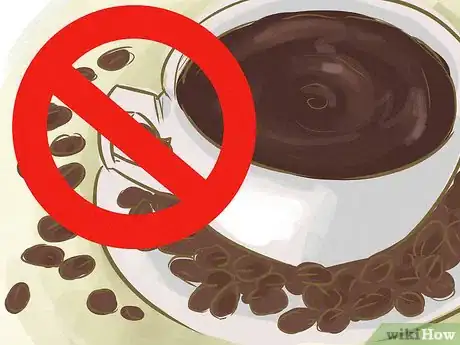
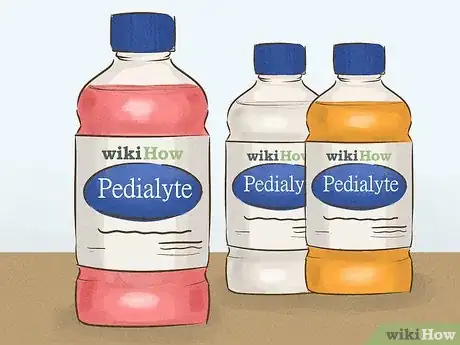


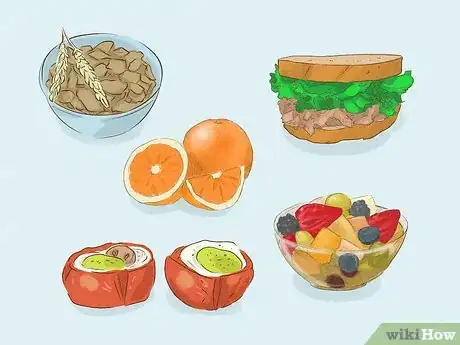
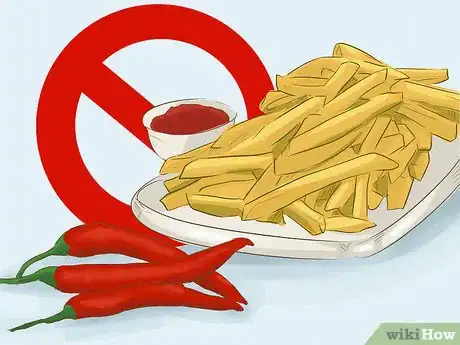
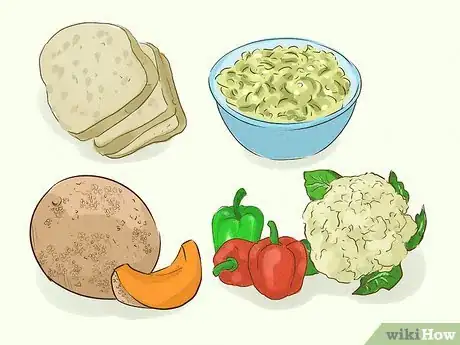
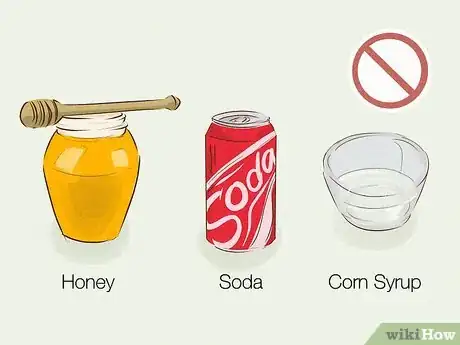
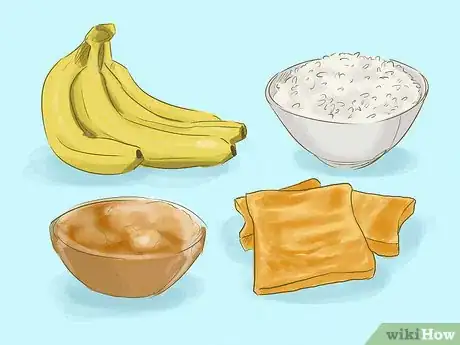
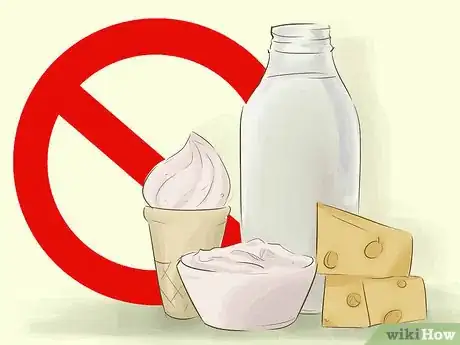
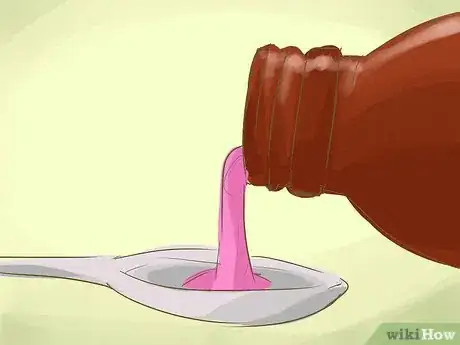
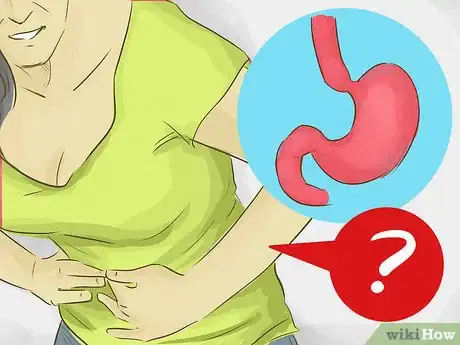
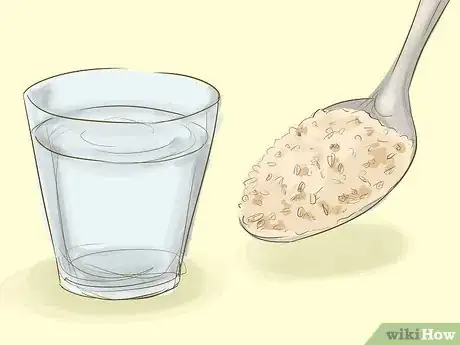

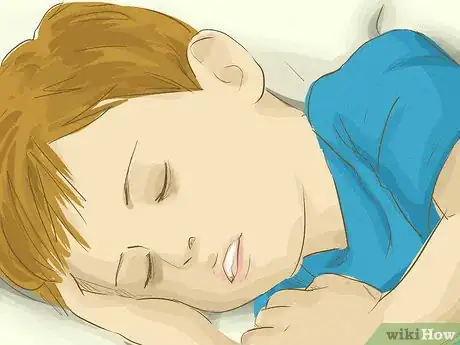

-Step-12.webp)


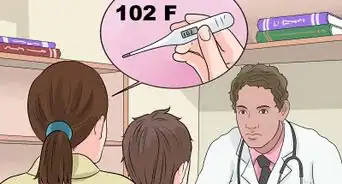
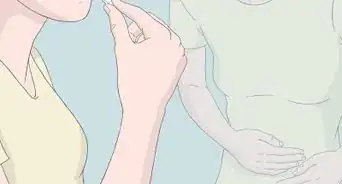
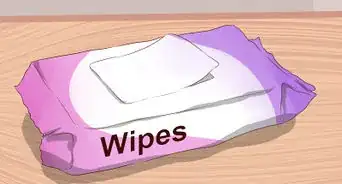

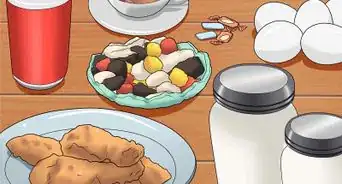

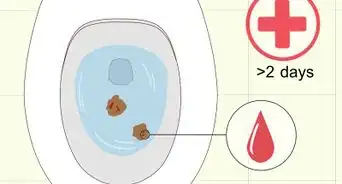
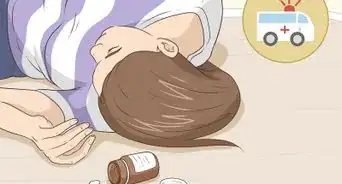













-Step-12.webp)


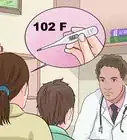



































Medical Disclaimer
The content of this article is not intended to be a substitute for professional medical advice, examination, diagnosis, or treatment. You should always contact your doctor or other qualified healthcare professional before starting, changing, or stopping any kind of health treatment.
Read More...